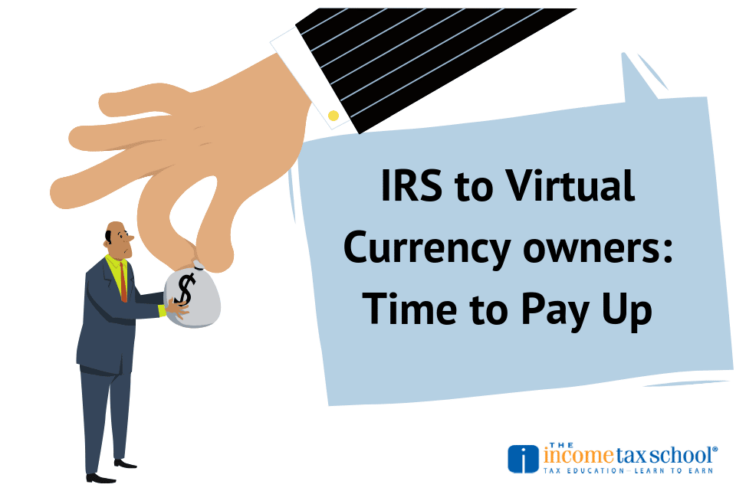
Time to open up your [virtual] coin purses and pay up! The IRS is done with the warnings and is ready to collect. They’ve been collecting information and doing research since 2018. Back in March of 2018, they convinced Coinbase, one of the largest cryptocurrency exchanges, to turn over 13,000 users’ data to the IRS. According to a recent press release (IR-2019-132), the IRS will begin sending letters to virtual currency owners advising them to pay back taxes and file amended returns.
“Taxpayers should take these letters very seriously by reviewing their tax filings and when appropriate, amend past returns and pay back taxes, interest and penalties,” said IRS Commissioner Chuck Rettig. “The IRS is expanding our efforts involving virtual currency, including increased use of data analytics. We are focused on enforcing the law and helping taxpayers fully understand and meet their obligations.”
How the IRS Taxes Virtual Currency
While it has currency in the name, the IRS actually views cryptocurrency as property in most circumstances. If you have clients selling, spending, or even exchanging cryptocurrency for other tokens, they will likely have capital gains implications. If you have clients who were paid in cryptocurrency or have made profits from the mining of cryptocurrency, they will have to report that as income.
Taxable actions with regards to cryptocurrency:
- Trading cryptocurrency: produces capital gains and losses.
- Exchanging cryptocurrency: treated as being sold and is subject to capital gains.
- Receiving payment in cryptocurrency: receipt of payment for goods and services – whether in cryptocurrency or not – is seen as income and must be reported as such.
- Spending cryptocurrency: still a taxable event is and treated as a capital gain or loss.
- Converting a cryptocurrency to a U.S. Dollar: Capital gains
- Mining coins: considered income equal to the fair market value of the coin.
For more guidance on the tax implications of virtual currency, check out IRS Notice 2014-21.
Time to Warn Clients
Hopefully, you’ve already been communicating with clients about the tax implications of cryptocurrency. If not now’s the time. The IRS has already started sending educational letters to taxpayers. They anticipate sending over 10,000 letters out by the end of August. The names of these taxpayers were obtained through various ongoing IRS compliance efforts.
There are three variations of letters: Letter 6173, Letter 6174 or Letter 6174-A, all three versions strive to help taxpayers understand their tax and filing obligations and how to correct past errors.
According to the recent notice, “Taxpayers who do not properly report the income tax consequences of virtual currency transactions are, when appropriate, liable for tax, penalties and interest. In some cases, taxpayers could be subject to criminal prosecution.”
